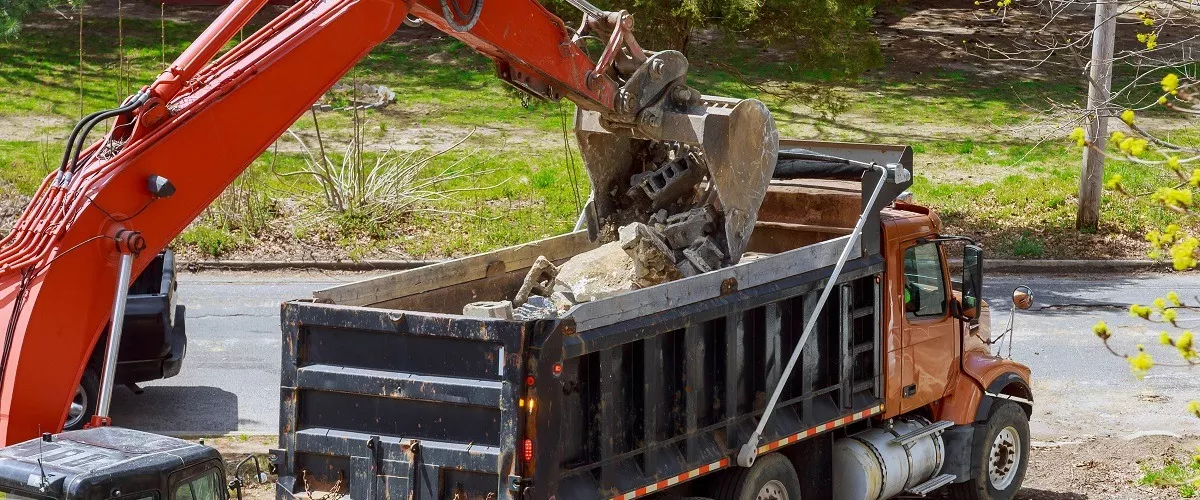


As insurance brokers, our goal at PBIB is to provide you with customized coverage that meets your unique needs. We have access to a variety of insurance programs and are not locked into any one plan, which allows us to find the best fit for your business. Our recommended coverage options provide protection for your business against a variety of potential losses, including property damage, personal injury, employee injuries, and damage or loss to vehicles and equipment. Additionally, our coverage includes legal fees and indemnity in case of lawsuits. Trust us to help you find the right insurance solutions to safeguard your Debris Removal Hauling business.
PBIB typically follows a standard approach of obtaining insurance quotes from multiple carriers to offer you the most competitive pricing and comprehensive coverage tailored to your unique requirements. In addition, all insurance policies come with flexible payment options, allowing you to make payments either on an annual or monthly basis.

Debris removal contractors are essential in the aftermath of natural disasters or construction projects. These contractors are responsible for removing debris, including hazardous materials, from a site to ensure that it is safe for future use. However, debris removal can be a risky business, and contractors face a variety of liability risks.
General liability insurance is a crucial component of any debris removal contractor's risk management strategy. This type of insurance provides coverage for bodily injury and property damage that results from the contractor's operations, as well as vulnerable circumstances and devastating lawsuits.
However, general liability insurance does not cover all risks that debris removal contractors face. For example, it typically does not cover damage to the contractor's own equipment or injuries to employees. For these risks, contractors may need to purchase additional coverage such as workers' compensation insurance, commercial auto insurance, or equipment insurance.
General liability might be legally required for your Debris Removal Hauling license in your state or county where you work. PBIB provides full-service certificates Monday through Friday and 24/7 self-service certificates, this is what we call “Insurance on your time”.
General Liability for Debris Removal Contractors can help you pay for:

Our policies are the best in the industry and offer optimal protection for you and your employees in case of any injury or illness. With workers’ compensation, your employees' medical expenses will be covered, and they will receive financial assistance to compensate for lost income. Moreover, in the event of a lawsuit, workers' compensation will protect you too. Trust us to provide you with a policy that guarantees the safety of both you and your employees.
If you require a Work Comp policy but have no employees, fret not. We offer policies that not only protect you but also provide the coverage your customers require.
It's worth noting that Workers Compensation may be mandatory for your Debris Removal Hauling license in your state or county of operation. At PBIB, we provide full-service certificates from Monday to Friday and offer 24/7 self-service certificates, this is what we call “Insurance on your time”.
Workers' Compensation for Debris Removal Contractors can help you pay for:

As a Debris Removal Contractor, your company vehicles are crucial to transporting your team, equipment, and supplies to job sites. At PBIB, we understand the significance of your mobile workforce and offer insurance that covers any damage or theft to your trucks, allowing you to quickly return to work.
Commercial Auto insurance is a vital coverage for Debris Removal Contractors and is often mandatory for many projects. At PBIB, we offer comprehensive insurance certificates during regular business hours to ensure you can get to work as quickly as possible. Additionally, we also provide 24/7 self-service certificates, giving you the flexibility to manage your insurance on your own schedule. We call this "Insurance on your time."
Commercial Auto for Concrete Contractors can help you pay for:

Debris removal contractors' insurance offers protection for their valuable movable property. The insurance policy includes tools and equipment coverage, also known as inland marine insurance, which safeguards their hard-earned assets from potential risks such as theft and damage. This coverage applies to situations at the worksite, in storage, or while transporting the equipment to and from the job site.
Tools & Equipment for Concrete Contractors can help you pay for damaged or stolen:

Debris removal contractors need professional liability insurance to protect themselves and their clients from financial harm caused by errors or accidents during the debris removal process. This coverage can protect against claims related to damage caused by improper debris removal, accidents or injuries that occur during the removal process, and any other errors or mistakes that result in financial harm to the client. Additionally, general liability insurance can protect against bodily injury or property damage claims. Overall, professional liability insurance is essential for managing the risks associated with debris removal work.
Professional Liability Insurance can help your business with:

To acquire or retain a contractor license, many states mandate a license bond. This bond serves as an assurance that you will comply with state laws and regulations, and will not abscond with customer deposits. The cost of a license bond can start as low as $70, but it is subject to variation based on individual credit, contractor classification, and license history.
We provide a range of bonds, including performance and payment bonds, and offer the convenience of obtaining an instant quote and binding online in just a few minutes. Simply indicate your state and the type of bond you require or choose from our list of options.
Huntsville is a city in the Appalachian region of northern Alabama and is the county seat of Madison County. Extending west into neighboring Limestone County and south into Morgan County, Huntsville has become the largest city in the state.
WikipediaLocated within the Mississippi Territory, Huntsville was founded by European Americans in 1805 and became an incorporated town in 1811. When Alabama was admitted as a state in 1819, Huntsville was designated for a year as the first capital, before that was moved to more central settlements. The city developed across nearby hills north of the Tennessee River, adding textile mills in the late nineteenth century.